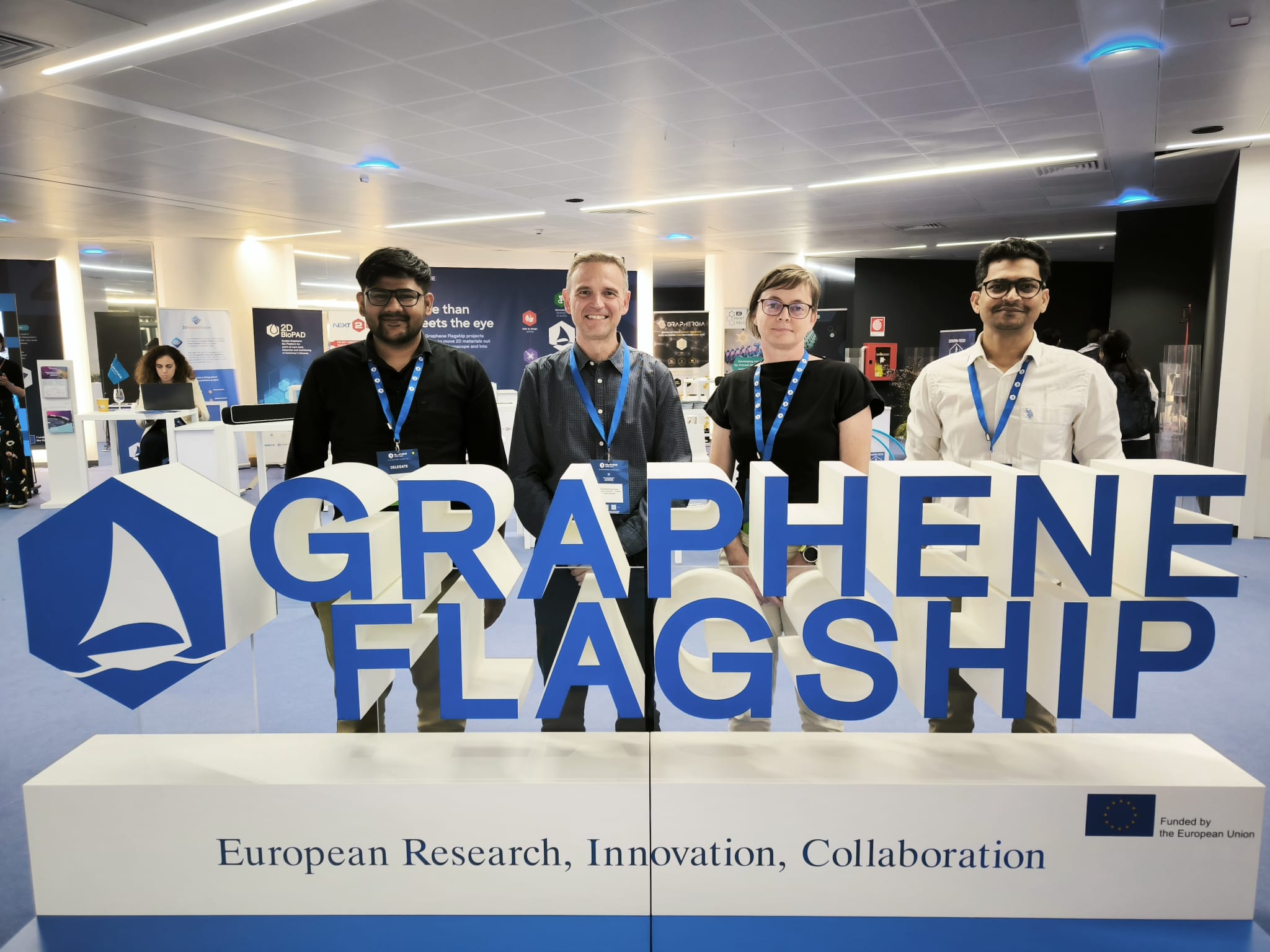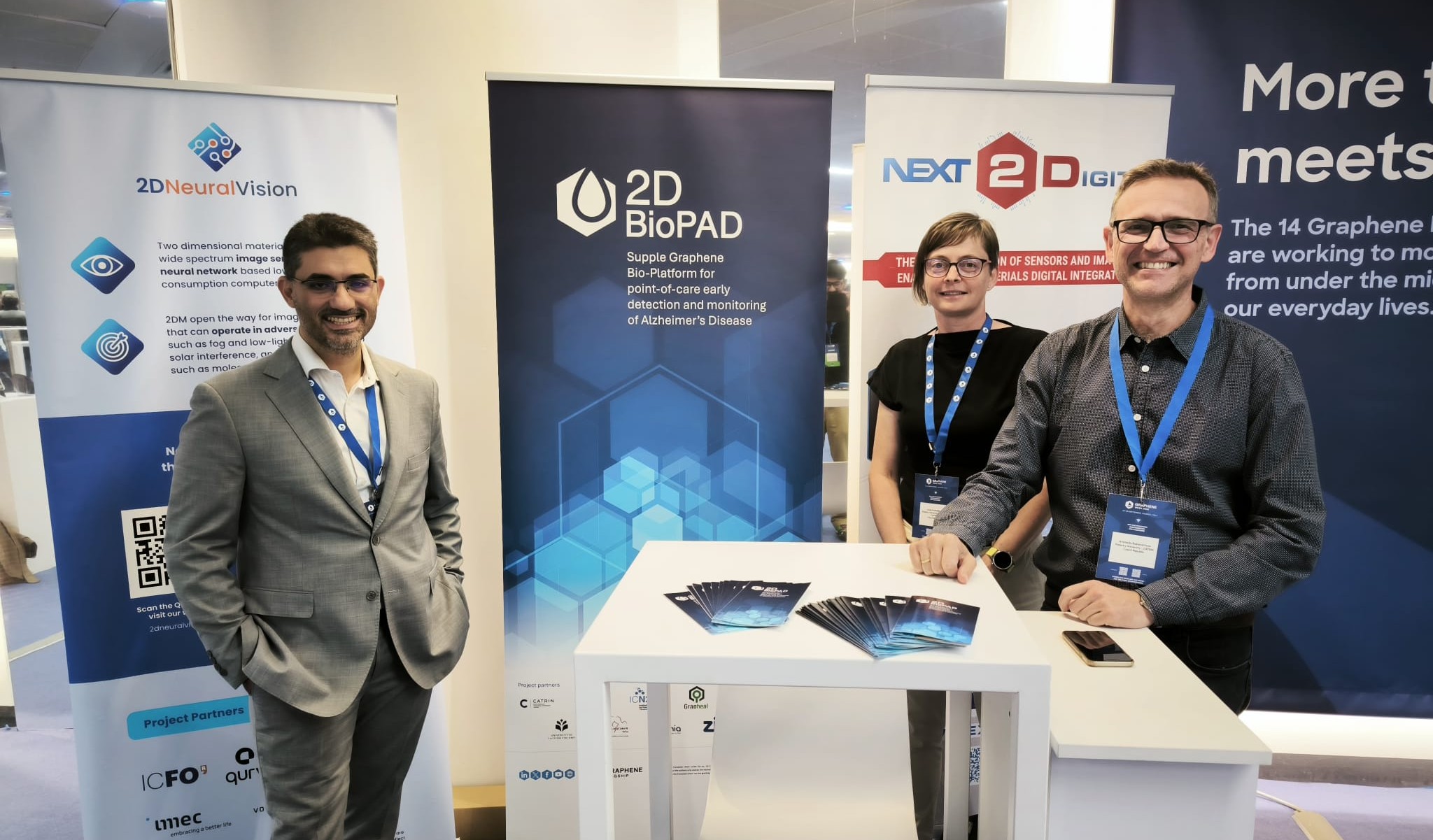
For the second year in a row, 2D-BioPAD took part in Graphene Week 2025, Europe’s main event on graphene and 2D materials, held from 22–26 September in Vicenza, Italy. The event brought together scientists, innovators, and industry leaders to share ideas and explore how 2D materials can shape the future. Throughout the week, 2D-BioPAD was highly engaged. The team ran a stand to share the project’s goals and progress, gave talks in open and innovation forums, and organised a workshop to connect with other experts.

At the Open Forum, Apostolos Tsolakis (Q-PLAN) joined a discussion on the Future Challenges to 2DM Integration, speaking about how to bring research results closer to real industrial use. Dr. Tsolakis also took part in the Innovation Forum: Commercialisation Pitches, where he presented 2D-BioPAD’s approach to making Alzheimer’s diagnosis faster and more accurate.
Continuing last year’s teamwork, 2D-BioPAD and its sister project, MUNASET, co-organised a joint workshop in the BioMed & Health session. Marianna Rosetti (ICN2) and Alexey Tarasov (Hochschule Kaiserslautern), moderated the workshop, which also included highlights from the two projects, including a presentation from Ronaldo Challhua (ICN2), who showcased the latest progress on graphene-based electrochemical biosensors for Alzheimer’s Disease (AD) diagnostics.

2D-BioPAD was also part of the Innovation Forum: From Fundamental Research to Innovative Applications (Part II). There, Vincent Bouchiat (Grapheal) joined global experts to share compelling success stories that demonstrate how cutting-edge research can be transformed into real-world technologies and commercial products. The session showed how 2D materials are opening new paths in medicine, electronics, and other fields through teamwork and technology sharing.
A key highlight of the week was the first public presentation of 2D-BioPAD’s GFET-based biosensor prototype, introduced by Vincent Bouchiat. This device can quickly check multiple AD biomarkers from a single blood sample. The sensor converts the results into digital data and sends them directly to a smartphone.
2D-BioPAD continues working towards its goal: to make Alzheimer’s disease diagnosis more accessible to everyone.
As we say: “…together we can do so much more!”
